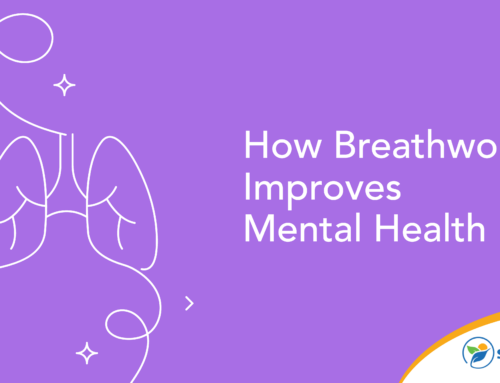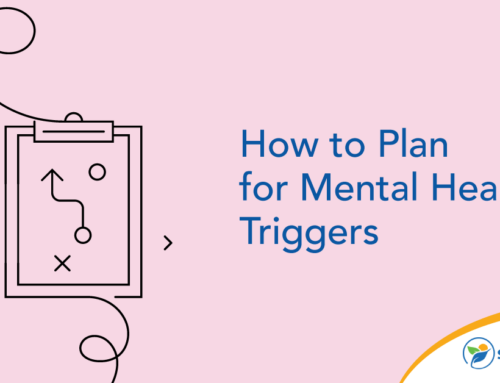Routines give our lives structure. Research shows that daily routines are an important part of maintaining mental and physical health, especially in times of stress. They can improve sleep, reduce anxiety and boost your mood. When you put positive things into your routine, you get positive things back.
The nature of a routine means making changes can be a challenge. But with the right behavior modification techniques, you can adjust your habits and meet your goals. Here are five behavioral hacks that can set you on the path toward a healthier lifestyle.
1. Take Small Steps
When you’re motivated to form healthy habits, it’s easy to take on too much at once. But a drastic change to your lifestyle may be hard to maintain. To keep your progress steady and your routine consistent, it’s best to start small.
Before you can determine what these small steps should look like, spend some time reflecting on your current lifestyle. This means comparing your goals to where you are now. In doing so, you’ll be better equipped to create a realistic plan of action.
For example, consider the common goal of getting more exercise. As you begin to work physical activity into your routine, it’s likely not realistic to go to the gym 7 days a week. Pushing yourself too hard increases your risk of burnout, which can slow your progress.
Instead, start small, with an initial goal of just one or two gym days per week. Adding in other forms of physical activity, like going for a walk after work or taking the stairs rather than the elevator, can also make it easier to build a routine compatible with physical activity. Increase your goals gradually and you’ll find exercise has naturally ingrained itself into your lifestyle.
2. Get Started Early
Both early birds and night owls tend to think they have their productivity schedule all figured out. But a new understanding of brain chemistry may prompt the late-night crowd to reset their alarms.
Serotonin and melatonin are the hormones responsible for controlling your sleep cycle. Melatonin naturally increases at night to help you get a good night’s rest, while serotonin increases in the morning to ensure you’re bright and ready to face the day. The higher your serotonin level, the more motivated you’re likely to feel. Tasks appear easier, focus improves and gratification is easier to delay.
These qualities are essential when it comes to daily routine optimization. By waking up earlier, you’ll have higher levels of serotonin and will likely be better equipped to tackle the new habits you’ve set. Recent research suggests that waking up earlier can also reduce your risk of depression by 23%, further strengthening your productivity.
As you work to build new habits, consider incorporating some into your morning routine. Lifestyle improvement strategies may appear easier to handle just after waking, when your focus is strong and you’re ready to get up and go.
3. Set Yourself Up to Succeed
Staying consistent can be hard when that initial surge of motivation wears off. Many people find their drive difficult to maintain over time. To ensure your habits stick, start setting yourself up for tomorrow today.
Convenience is your friend when it comes to healthy habit formation. Eliminating the friction between you and your new routine can help you make each action almost automatic. To do this, try looking for ways to make your new habits easier to complete.
For example, if your goal is to go to the gym regularly, it might be easier if you get your gym bag packed and ready the night before. For those looking to eat healthier, having a weekly meal plan can eliminate the nightly scramble to find something for dinner. And if you’re looking to read more, keeping a book on your bedside table means it’s always within reach before you go to sleep.
4. Keep Track of Your Progress
Visual cues can hold a lot of power. As you work to build new habits, having a visual reminder of your progress can serve as a reliable source of motivation. The desire to keep your streak going may push you to persevere even when you don’t feel like it, preventing you from slipping back into old habits.
Visual cues can come in many forms, but the simplest can be the most effective. Try drawing an X on your calendar each day you meet your goal. Or download a tracking app to make note of your success. Setting reminders on your phone may even remind you to stick to your new habits on busy days.
Keep a record of your behavior modification techniques, such as with a habit-tracking journal, to remind you how far you’ve come. Looking back at your progress can encourage you to keep going. Plus, this is a good place to write your reflections on the habit-forming process overall.
Consider sharing your goals with friends and family for an extra source of motivation. Or go one step further and ask a loved one to be your accountability partner. You can share goals with each other and even check in with regular progress reports. With another person working to build habits alongside you, it can be much easier to rise to the challenge.
5. Seek Help When You Need It
Transforming your routine isn’t easy, even with the best behavior modification techniques. But if something else is holding you back, whether it’s addiction or mental illness, getting help can be the best path toward meeting your goals.
A team of professionals, like those at Sunlight Recovery, can help you overcome the barriers that separate you from a healthy routine. With their knowledge and expertise, you’ll likely discover some additional behavioral hacks to keep you on track to meet your goals.
Optimizing your daily routine is a long-term process. And while it may have its challenges, the positive benefits you stand to gain are well worth the effort. With the right techniques and a little help from others, it’s possible to build the healthy routine you’re looking for.







